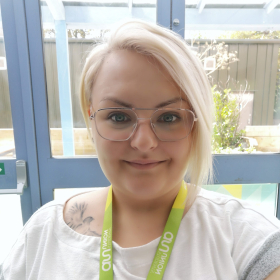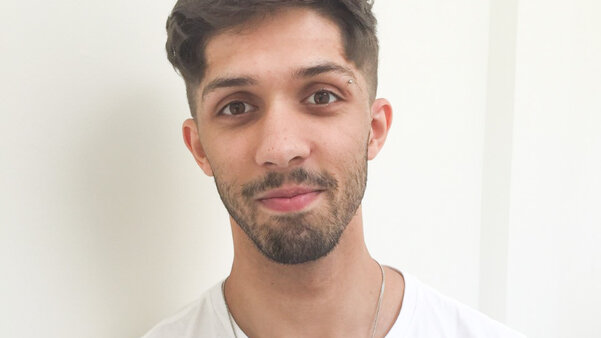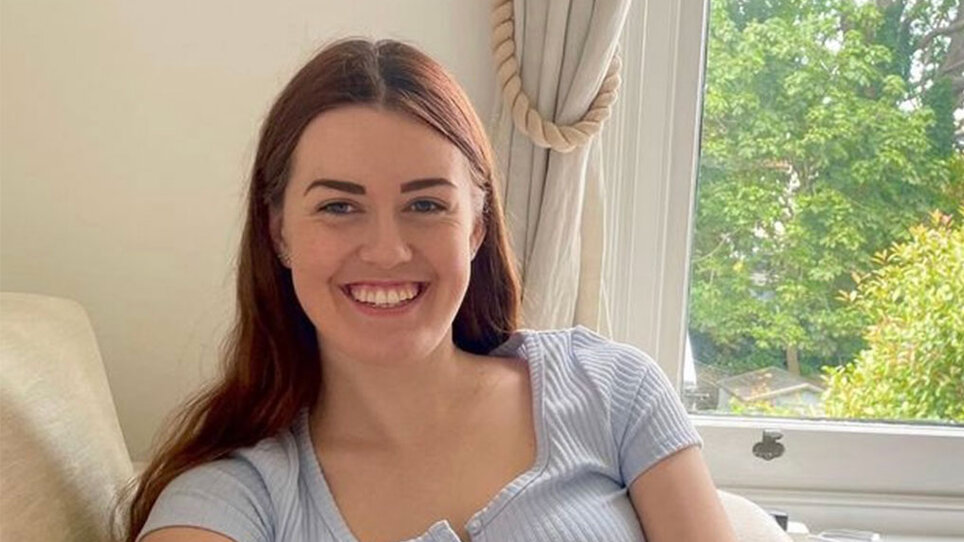
"I realised how low my self-esteem was from constantly feeling the need to mask my true self, in case others judged me negatively."
Dr Hannah Belcher
- autistic postdoctoral researcher and author
Dr Hannah Belcher on her autism diagnosis, using art as a way to express herself, and more...
We caught up with Dr Hannah Belcher, a post-doctoral researcher at King's College London, and one of the speakers at our recent mental health conference. Here, she writes about getting an autism diagnosis, her mental health journey, and learning to express herself through art...
My mental health has always been something of an enigma to me, and something I have tried to get to the bottom of for as long as I can remember. Throughout my childhood I experienced severe phobias, anxiety, and selective mutism. Every word I spoke felt like I was revealing another layer of my bare flesh. No one knew why, and no one really tried to find out why. As long as I was doing well at school and appeared to have friends, as far as everyone around me was concerned, I was doing fine.
Eventually this came to a head when I was 14 and I dropped out of school completely. There followed a decade of deep depression, self-harm, suicidal thoughts, panic attacks and agoraphobia. This was occasionally interspersed with periods of a more hyper mood, where I’d take on multiple projects, gamble, spend money, and suddenly have a desire to leave the house more than usual and socialise.
"My mental health has always been something of an enigma to me, and something I have tried to get to the bottom of for as long as I can remember."

We all know that looking after our mental health is important, but sometimes it can feel almost impossible. Being autistic can make this harder.
I bounced in and out of mental health services, with no one really understanding what I was going through. I was given pill after pill and was frequently under the Crisis and Home Treatment Team. I was accused by therapists and doctors of making it up and of being avoidant and ‘difficult’, all because I couldn’t properly communicate my feelings and thoughts.
Eventually, I was referred for art therapy and it completely changed my life...
Being able to do something creative and distracting while talking to someone opened up a whole new way of communicating for me. My art therapist first identified that I might be autistic, and getting my diagnosis helped explain many of the mental health difficulties I had faced. Just this knowledge alone meant I felt more confident to leave the house again and more aware of the sources of my anxiety.
For example, I had been avoiding shops and queues for years, but now I understood it was the sensory sensitivities I faced that made these environments so difficult for me. Similarly, I realised how low my self-esteem was from constantly feeling the need to mask my true self, in case others judged me negatively.
"I was accused by therapists and doctors of making it up and of being avoidant and ‘difficult’, all because I couldn’t properly communicate my feelings and thoughts."
I still struggle significantly with my mental health difficulties and professionals who still don’t understand me. However, I’ve been able to find my voice with the support of the autism community and those who have shared the experiences I have.
For example, the National Autistic Society’s online community provides a safe space for autistic people to meet others. Some of the tips I’ve picked up along the way have included giving myself more days off from socialising, so I can properly just be myself and unwind. I’ve also found having weekly therapy really good for staying on top of my thoughts and preventing stress from building.
My advice for others would be:
Don't be frightened to keep reaching out until you find the right support.
If someone doesn’t understand you that’s not your fault, and you will find someone who does.

Enjoyed reading Hannah's article?
Visit our mental health advice and guidance pages for tips, resources, and contact details.

Related advice and support
Similar stories

"We all know that looking after our mental health is important, but sometimes it can feel almost impossible and being autistic can make this harder."
Emily Katy
- autistic mental health advocate
Read more

"For the longest time, I only ever considered my mental health when it couldn’t be ignored."
James Ward-Sinclair
- autistic advocate and founder of Autistic & Unapologetic
Read more

"For some autistic people, the feeling of loneliness can be really strong, and it can feel incredibly isolating. I want you to know that you’re not alone if you are feeling this way."
Emily Katy
- autistic mental health advocate
Read more

The Spectrum magazine
Explore one of the UK's largest collections of autistic art, poetry, and prose. The Spectrum magazine is created by and for autistic people, and is available both online and in print.

Stories from the Spectrum
Autistic people and their loved ones share their experiences. Read their funny, thought-provoking, challenging and moving stories.






You are not alone
Join our community
Our online community is a place for autistic people and their families to meet like-minded people and share their experiences.
Join today